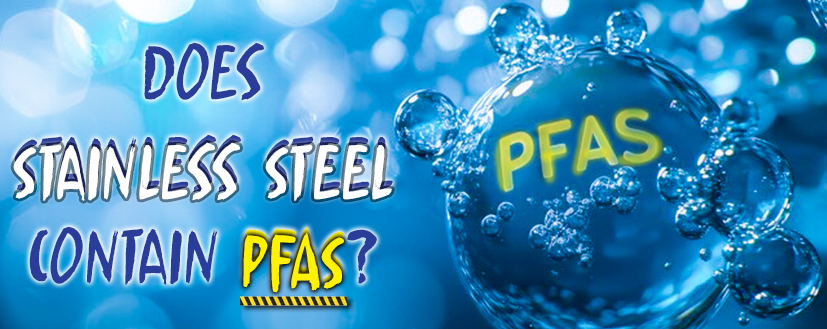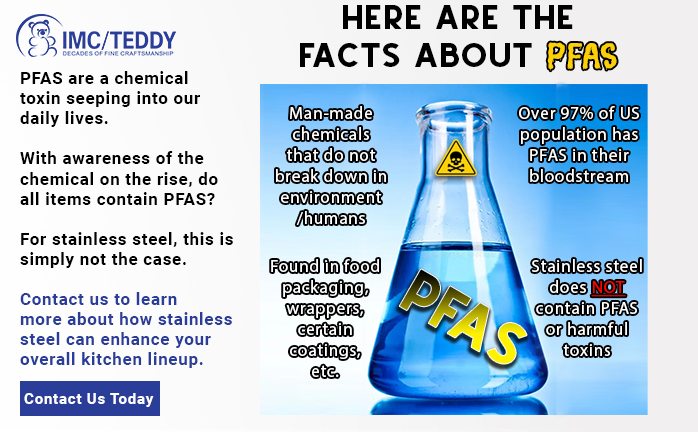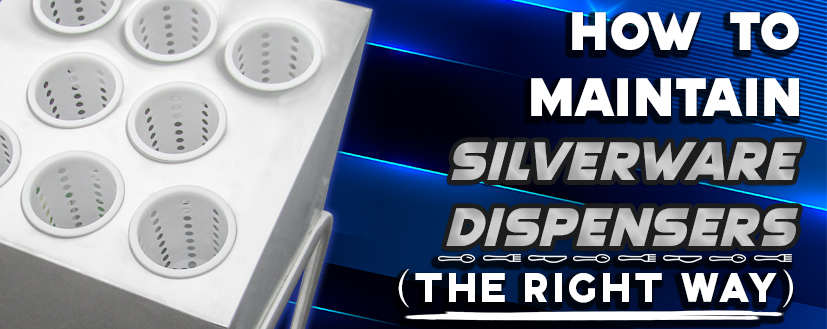Does Stainless Steel Contain PFAS?

In the foodservice industry, chemical exposure comes with the territory. These chemicals range from environmental contaminants from soil or water to process contaminants which come from byproducts. However, one group of chemical toxins has come forth as the most prominent – PFAS. How are PFAS affecting safety in foodservice equipment industry & your wellbeing?
In this article, we’ll tell you what PFAS is & give you the final word on stainless steel in regard to them. Let’s begin.
What Exactly Are PFAS?
Per- and polyfluoroalkyl substances (PFAS) are a group of man-made chemicals used primarily in food packaging but can also be found in coatings of cookware or contaminated cooking/drinking water.
They are often referred to as "forever chemicals" because they do not break down in the environment or the human body, lasting indefinitely. Unfortunately, PFAS are linked to various health problems such as certain types of cancers, thyroid disease, reproductive effects, and developmental effects.
PFOA (perfluorooctanoic acid, or C8) is one of the most common types of PFAS found in the environment. This chemical, along with the similar PFOS (perfluorooctane sulfonate), was once used in household products such as stain-resistant cleaners & firefighting foams.
PFAS exposure is a current crisis with much of the country being affected on a daily basis, mostly due to drinking water concerns. As mentioned before, PFAS also live on through packaging such as microwave popcorn bags, sandwich wrappers, fast food wrappers, etc. Even common household items such as shaving cream, shampoo, sunscreen & floss contain PFAS.
There is no straightforward way to avoid PFAS. In fact, more than 97% of the U.S. population have PFAS in their bloodstream.
So, Does Stainless Steel Contain Them?
Commercial kitchens are bound to have stainless steel in them, so it is a common material. We’re here to report that stainless steel contains exactly ZERO PFAS. This is because the hot temperatures used in the steel production process prevent organic chemicals from surviving or being incorporated into the steel. Also, stainless steel is made up of iron, chromium & nickel – all of which are PFAS free.
Stainless steel is naturally non-toxic so it is 100% safe to use for cooking & baking – a true “food grade” material. Stainless steel is also resistant to scratching so no harmful chemicals are released into food during preparation.
HOWEVER, stainless steel can potentially be coated or packaged with organic products that may contain PFAS. Be wary of stainless steel cookware that may have a coating containing PFAS. Check the packaging/fine print for any chemical details prior to use.
Overall, to create the most non-toxic environment possible, invest in stainless steel cookware that is not coated with chemicals that may contain PFAS. Naturally, having a lineup of stainless steel equipment is perfectly safe with no chance of toxic chemicals being released into the environment.
To learn more about how IMC can cater to your stainless steel needs, click here.





